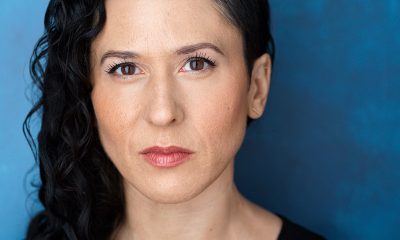Arts & Entertainment
The wild west
Shakespeare production works well in Folger variation
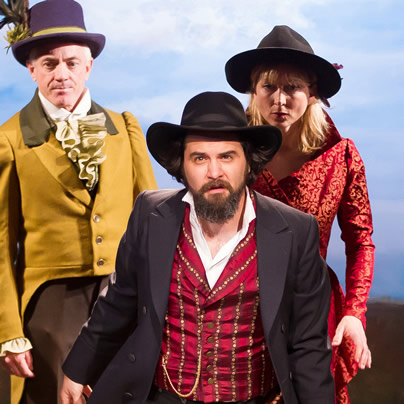
‘The Taming of the Shrew’
Through June 10
Folger Theatre
201 East Capitol Street, SE
$39-$65 (discounts available)
202-608-1719
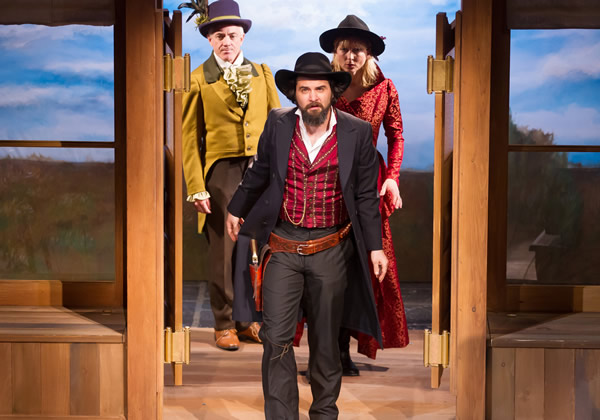
From left, Danny Scheie, Cody Nickell and Kate Eastwood Norris in ‘The Taming of the Shrew’ at Folger Theatre. (Photo by Jeff Malet courtesy Folger)
It was while watching the HBO series “Deadwood,” writes/director Aaron Posner in the program notes for Folger Theatre’s “The Taming of the Shrew,” that he first became inspired to set his production in the American West, circa 1890. While Posner admits it’s not a totally original take on the Bard’s battle of the sexes — it’s been done before — the move from Padua to the Old West works: the raucous, defiant aspects of Shakespeare’s early comedy translate quite nicely.
Because Posner has dropped the play’s official Induction, a cute framing device that establishes “Shrew” as a play within in a play, his fast-paced and funny production jumps quickly into the unconventional courtship of fortune-hunting gambler Petruchio and Katherine, the ornery shrew (played by real life husband and wife Cody Nickell and Kate Eastwood Norris). At first, Katherine wants no part of love and marriage, but through an assortment of carefully executed psychological and physical tortures Petruchio remarkably alters her into the most obliging of wives.
Norris’ Katherine is a sort of hard-drinking, pistol-packing Calamity Jane for whom a future of happy domesticity seems impossible or a real longshot at best; but, again, Petruchio’s abuse works wonders in tempering Katherine’s obstinate disposition. Yes, it’s all very sexist stuff, but Norris is a smart actor with a deft touch, and her transformation from shrew to obedient wifey is nuanced — it’s more about discovering love and finding a new way to live.
Similarly, Nickell’s charming Petruchio is clearly smitten with his Kate, and it’s a love that proves sincere. When he outfits his bride in elegant new duds, Petruchio strives to please by giving her pants and a beautiful pair of black boots complete with spurs. And after proving his wife’s changed nature in a high stakes bet, he hands the winnings over to Katherine. The pair is a team, and it bodes well for a happy and equal marriage.
The comedy’s secondary romantic subplot involves a complicated competition between the suitors of Katherine’s younger more desirable sister, Bianca (Sarah Mollo-Christensen). Her eager wannabe husbands are played by Marcus Kyd, Craig Wallace and Thomas Keegan. Katy Carkuff is a standout as a boozy, well-off widow. James Gardiner and gay actor Danny Sheie play the comic servants.
In a nod to the changing roles of frontier women, Posner has made some intriguing gender-bending choices. The part of Katherine and Bianca’s father Baptista has been changed to a same-named, marriage-brokering mother played by Sarah Marshall, who’s gay. Her Baptista is comically reminiscent of the silver screen types played by Jo Van Fleet and Mercedes McCambridge: Prosperous, independent, tightly wound and willing to level a shotgun when necessary.
The traditionally male Tranio, a clever servant who goes undercover for his master, is also female for this production. As Tranio, Holly Twyford (also gay), swaps out a dull long dress and petticoat for a dapper copper suit and jauntily worn boater. Tranio’s put on squared-off shoulders and masculine walk are belied by touching instances when Twyford reveals the vulnerable young woman beneath the phony moustache, and these are lovely moments indeed.
Tony Cisek’s set is a two-tiered saloon made from roughly hewn wood. Through its swinging doors lie endless plains and big sky. Helen Q. Huang heightens the effect of her beautiful period costumes with subtle flourishes of fancy, freeing them from being too overly moored to time and place.
Additionally, singer/songwriter Cliff Eberhardt in the role of “The Blind Balladeer” performs his bluesy, witty, heartfelt tunes intermittently throughout the play. It’s a wonderful touch that entertainingly trains the spotlight on the characters’ intentions and passions.
At the top of the show, we’re told the evening will end “after [the players] dance.” It’s a promise kept. Posner closes the play with an old fashioned rousing line dance, sending the audience off with a big shot of the Wild West, fun and romance.

More than a dozen LGBTQ athletes won medals at the Milan Cortina Winter Olympics that ended on Sunday.
Cayla Barnes, Hilary Knight, and Alex Carpenter are LGBTQ members of the U.S. women’s hockey team that won a gold medal after they defeated Canada in overtime. Knight the day before the Feb. 19 match proposed to her girlfriend, Brittany Bowe, an Olympic speed skater.
French ice dancer Guillaume Cizeron, who is gay, and his partner Laurence Fournier Beaudry won gold. American alpine skier Breezy Johnson, who is bisexual, won gold in the women’s downhill. Amber Glenn, who identifies as bisexual and pansexual, was part of the American figure skating team that won gold in the team event.
Swiss freestyle skier Mathilde Gremaud, who is in a relationship with Vali Höll, an Austrian mountain biker, won gold in women’s freeski slopestyle.
Bruce Mouat, who is the captain of the British curling team that won a silver medal, is gay. Six members of the Canadian women’s hockey team — Emily Clark, Erin Ambrose, Emerance Maschmeyer, Brianne Jenner, Laura Stacey, and Marie-Philip Poulin — that won silver are LGBTQ.
Swedish freestyle skier Sandra Naeslund, who is a lesbian, won a bronze medal in ski cross.
Belgian speed skater Tineke den Dulk, who is bisexual, was part of her country’s mixed 2000-meter relay that won bronze. Canadian ice dancer Paul Poirier, who is gay, and his partner, Piper Gilles, won bronze.
Laura Zimmermann, who is queer, is a member of the Swiss women’s hockey team that won bronze when they defeated Sweden.
Outsports.com notes all of the LGBTQ Olympians who competed at the games and who medaled.
Theater
José Zayas brings ‘The House of Bernarda Alba’ to GALA Hispanic Theatre
Gay Spanish playwright Federico García Lorca wrote masterpiece before 1936 execution

‘The House of Bernarda Alba’
Through March 1
GALA Hispanic Theatre
3333 14th St., N.W.
$27-$52
Galatheatre.org
In Federico García Lorca’s “The House of Bernarda Alba,” now at GALA Hispanic Theatre in Columbia Heights, an impossibly oppressive domestic situation serves, in short, as an allegory for the repressive, patriarchal, and fascist atmosphere of 1930s Spain
The gay playwright completed his final and arguably best work in 1936, just months before he was executed by a right-wing firing squad. “Bernarda Alba” is set in the same year, sometime during a hot summer in rural Andalusia, the heart of “España profunda” (the deep Spain), where traditions are deeply rooted and mores seldom challenged.
At Bernarda’s house, the atmosphere, already stifling, is about to get worse.
On the day of her second husband’s funeral, Bernarda Alba (superbly played by Luz Nicolás), a sixtyish woman accustomed to calling the shots, gathers her five unmarried daughters (ages ranging from 20 to 39) and matter-of-factly explain what’s to happen next.
She says, “Through the eight years of mourning not a breeze shall enter this house. Consider the doors and windows as sealed with bricks. That’s how it was in my father’s house and my grandfather’s. Meanwhile, you can embroider your trousseaux.”
It’s not an altogether sunny plan. While Angustias (María del Mar Rodríguez), Bernarda’s daughter from her first marriage and heiress to a fortune, is betrothed to a much younger catch, Pepe el Romano, who never appears on stage, the remaining four stand little chance of finding suitable matches. Not only are they dowry-less, but no men, eligible or otherwise, are admitted into their mother’s house.
Lorca is a literary hero known for his mastery of both lyrical poetry and visceral drama; still, “Bernarda Alba’s” plotline might suit a telenovela. Despotic mother heads a house of adult daughters. Said daughters are churning with passions and jealousies. When sneaky Martirio (Giselle Gonzáles) steals the photo of Angustias’s fiancé all heck kicks off. Lots of infighting and high drama ensue. There’s even a batty grandmother (Alicia Kaplan) in the wings for bleak comic relief.
At GALA, the modern classic is lovingly staged by José Zayas. The New York-based out director has assembled a committed cast and creative team who’ve manifested an extraordinarily timely 90-minute production performed in Spanish with English subtitles easily ready seen on multiple screens.
In Lorca’s stage directions, he describes the set as an inner room in Bernarda’s house; it’s bright white with thick walls. At GALA, scenic designer Grisele Gonzáles continues the one-color theme with bright red walls and floor and closed doors. There are no props.
In the airless room, women sit on straight back chairs sewing. They think of men, still. Two are fixated on their oldest siter’s hunky betrothed. Only Magdelena (Anna Malavé), the one sister who truly mourns their dead father, has given up on marriage entirely.
The severity of the place is alleviated by men’s distant voices, Koki Lortkipanidze’s original music, movement (stir crazy sisters scratching walls), and even a precisely executed beatdown choreographed by Lorraine Ressegger-Slone.
In a short yet telling scene, Bernarda’s youngest daughter Adela (María Coral) proves she will serve as the rebellion to Bernarda’s dictatorship. Reluctant to mourn, Adela admires her reflection. She has traded her black togs for a seafoam green party dress. It’s a dreamily lit moment (compliments of lighting designer Hailey Laroe.)
But there’s no mistaking who’s in charge. Dressed in unflattering widow weeds, her face locked in a disapproving sneer, Bernarda rules with an iron fist; and despite ramrod posture, she uses a cane (though mostly as a weapon during one of her frequent rages.)
Bernarda’s countenance softens only when sharing a bit of gossip with Poncia, her longtime servant convincingly played by Evelyn Rosario Vega.
Nicolás has appeared in “Bernarda Alba” before, first as daughter Martirio in Madrid, and recently as the mother in an English language production at Carnegie Melon University in Pittsburgh. And now in D.C. where her Bernarda is dictatorial, prone to violence, and scarily pro-patriarchy.
Words and phrases echo throughout Lorca’s play, all likely to signal a tightening oppression: “mourning,” “my house,” “honor,” and finally “silence.”
As a queer artist sympathetic to left wing causes, Lorca knew of what he wrote. He understood the provinces, the dangers of tyranny, and the dimming of democracy. Early in Spain’s Civil War, Lorca was dragged to the the woods and murdered by Franco’s thugs. Presumably buried in a mass grave, his remains have never been found.
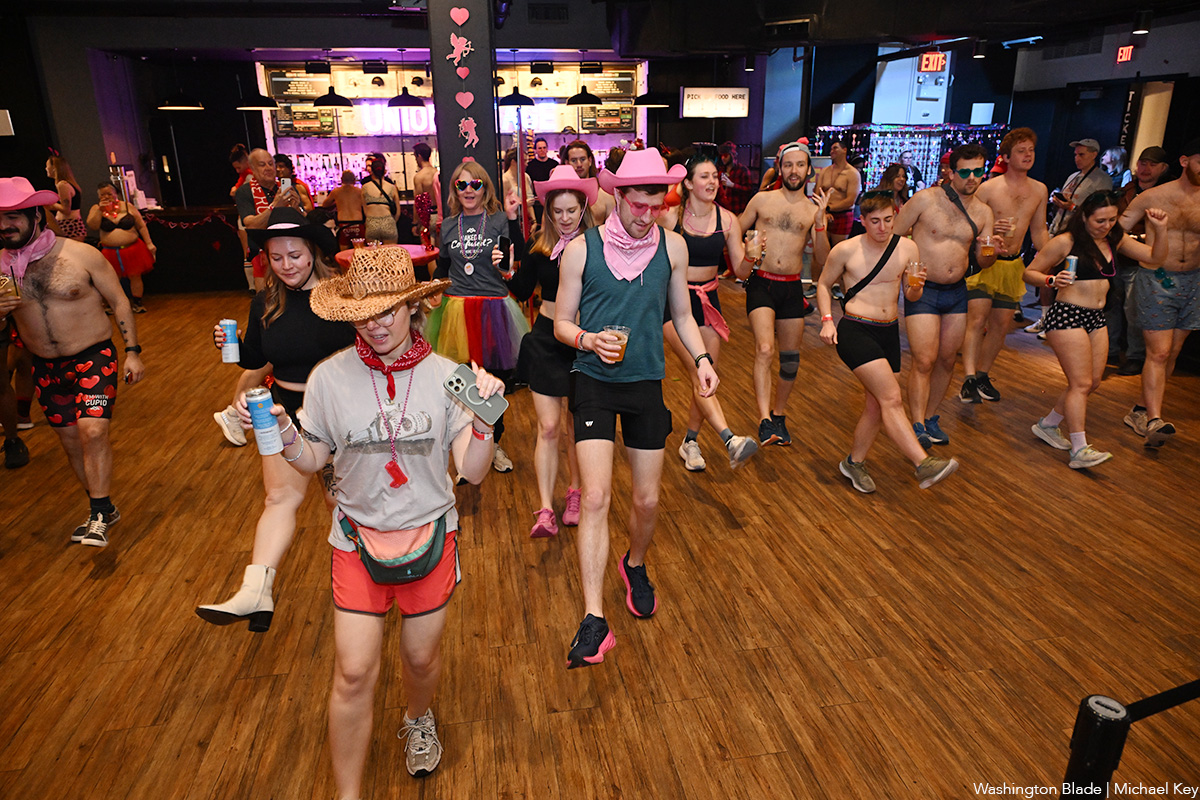
Cupid’s Undie Run, an annual fundraiser for neurofibromatosis (NF) research, was held at Union Stage and at The Wharf DC on Saturday, Feb. 21.
(Washington Blade photos by Michael Key)
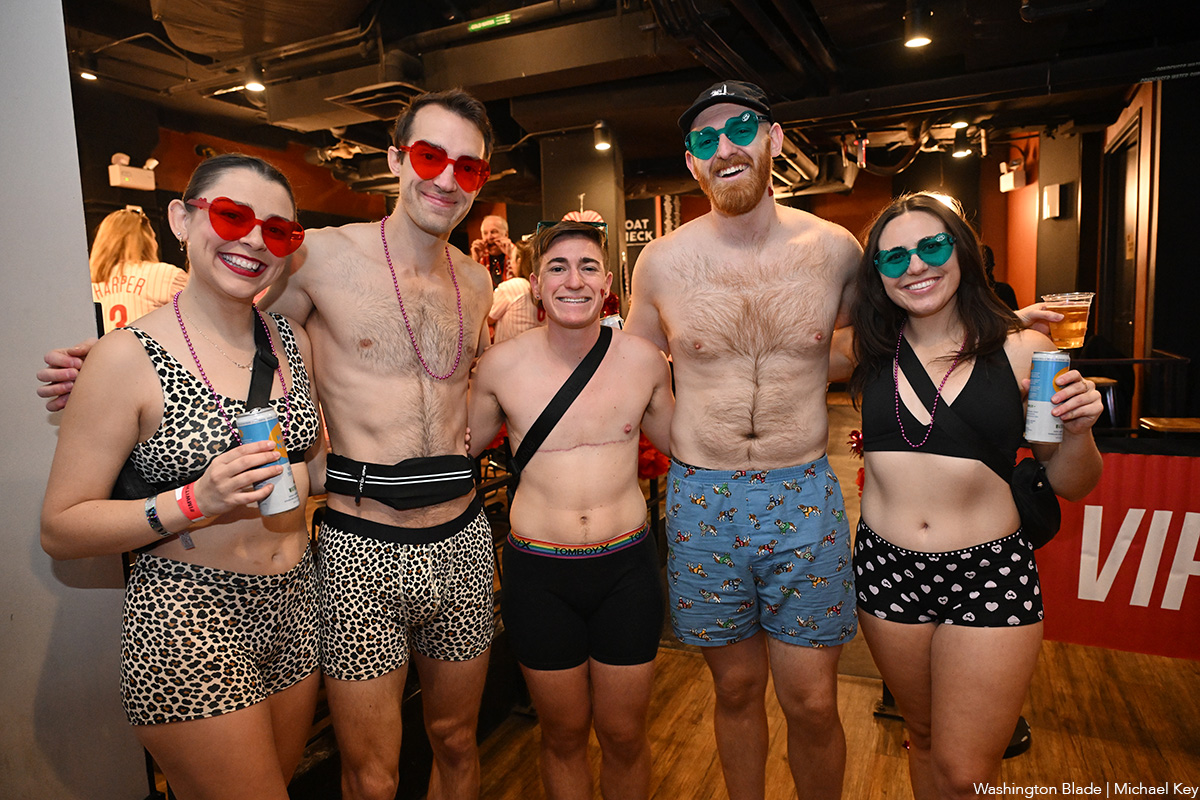
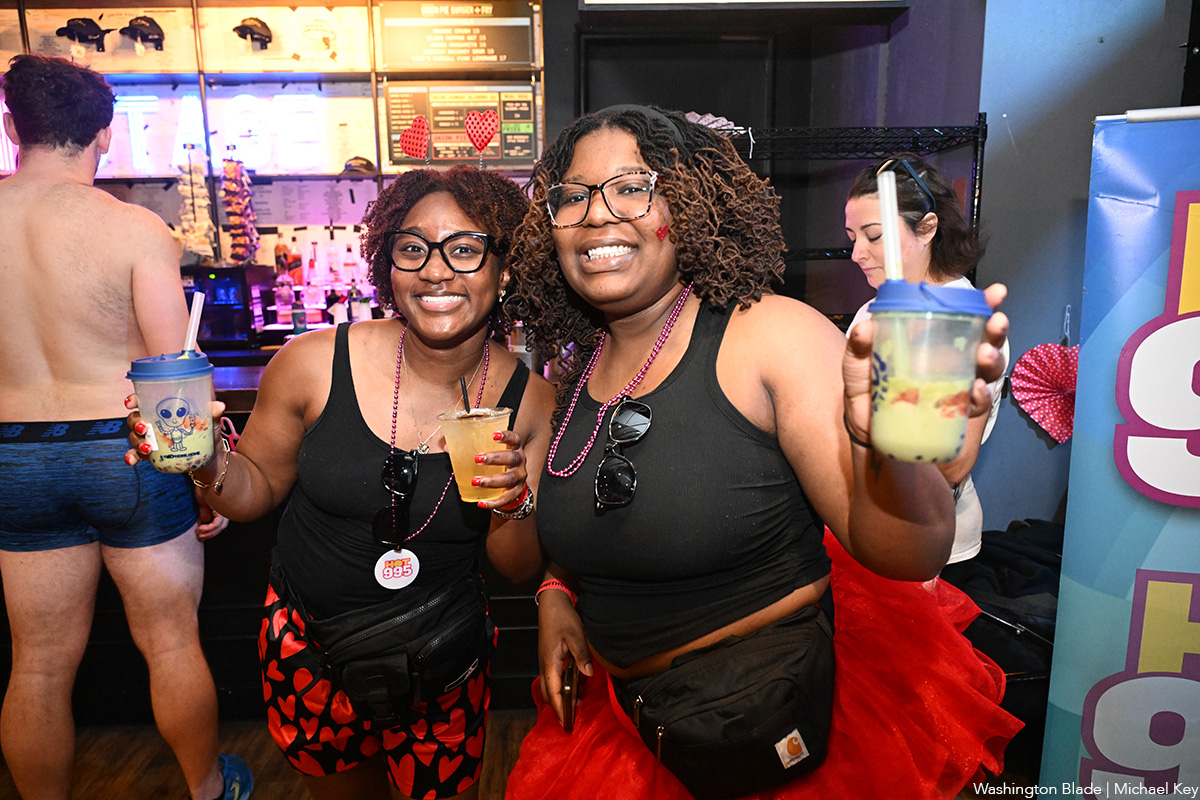
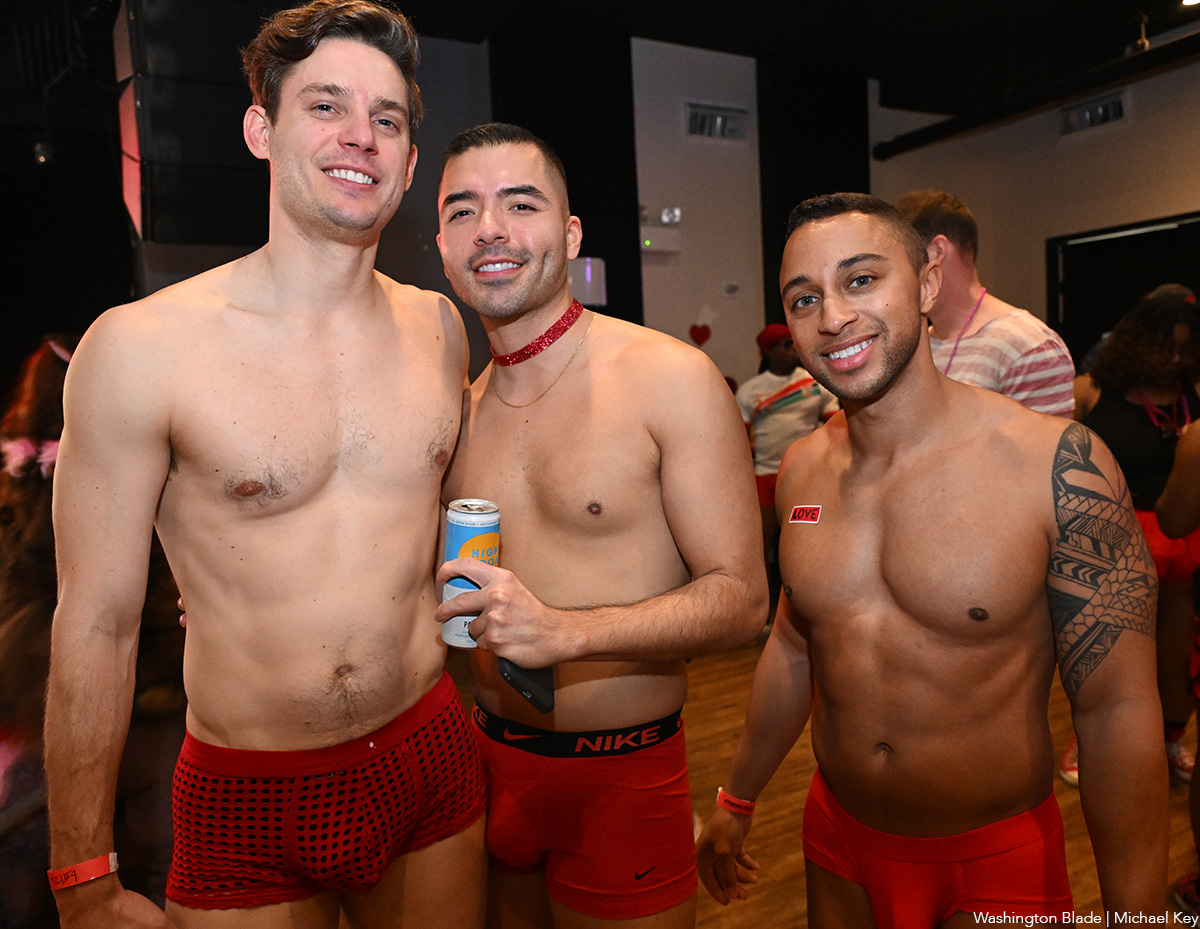
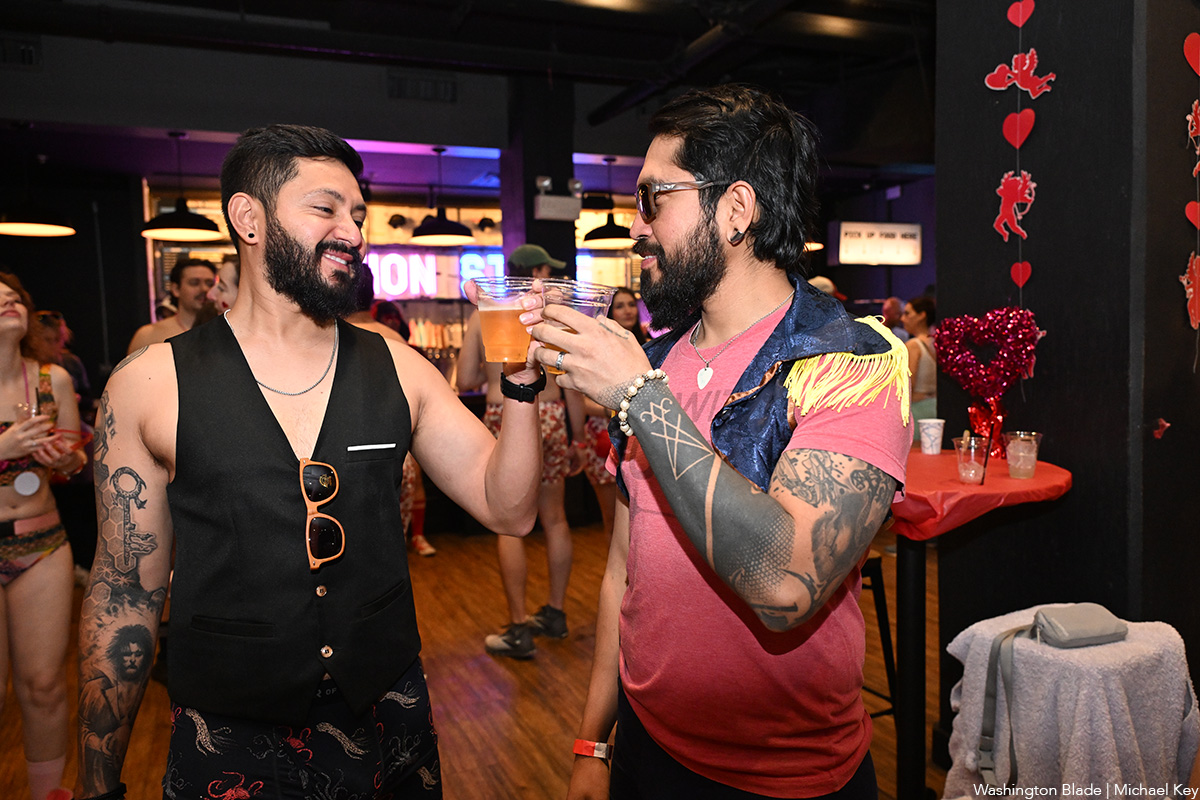
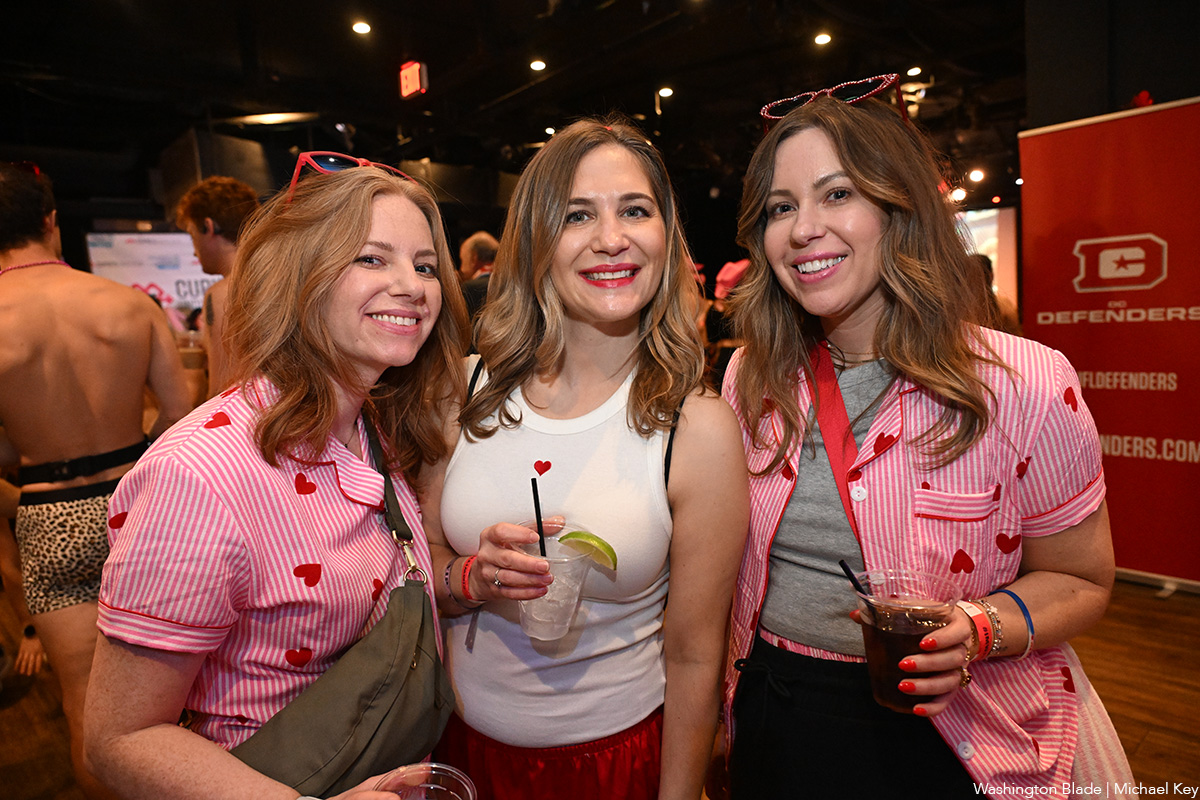
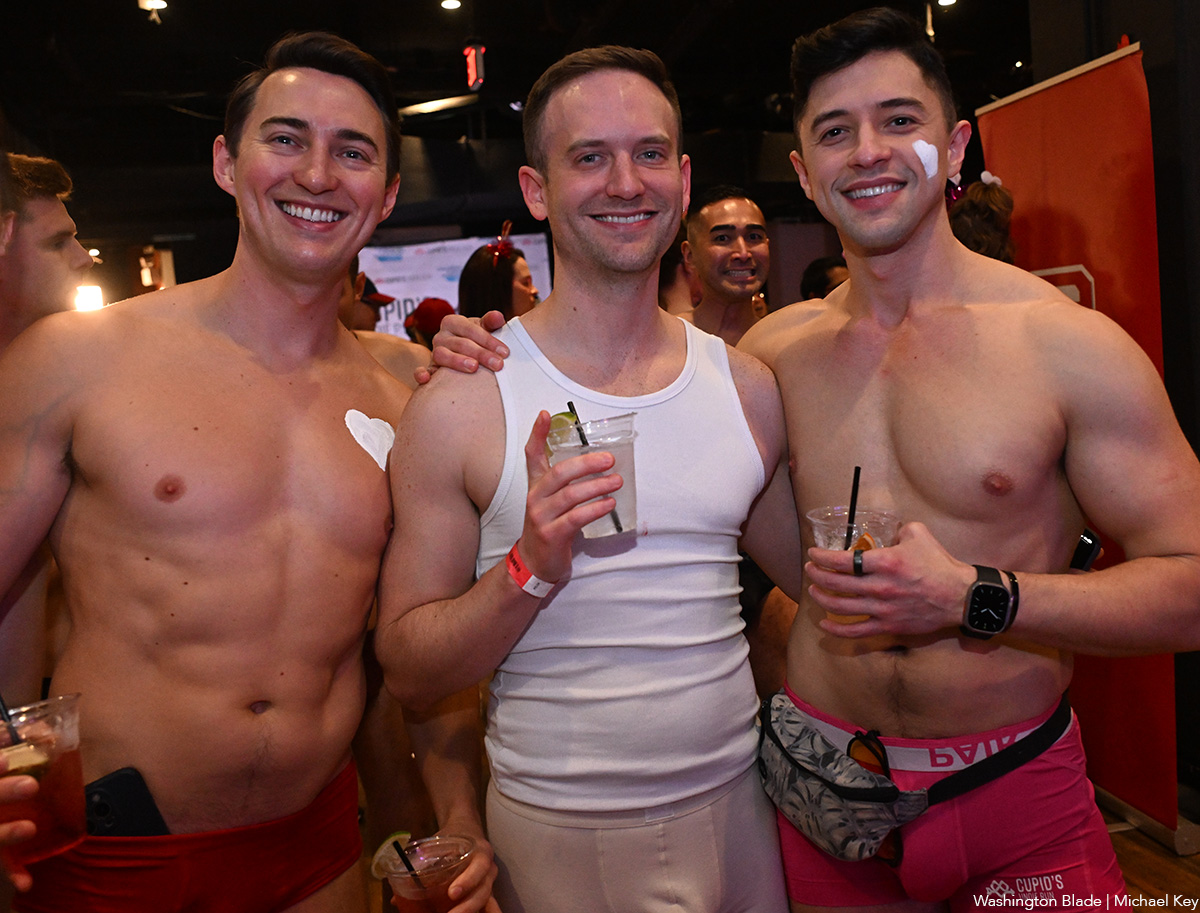
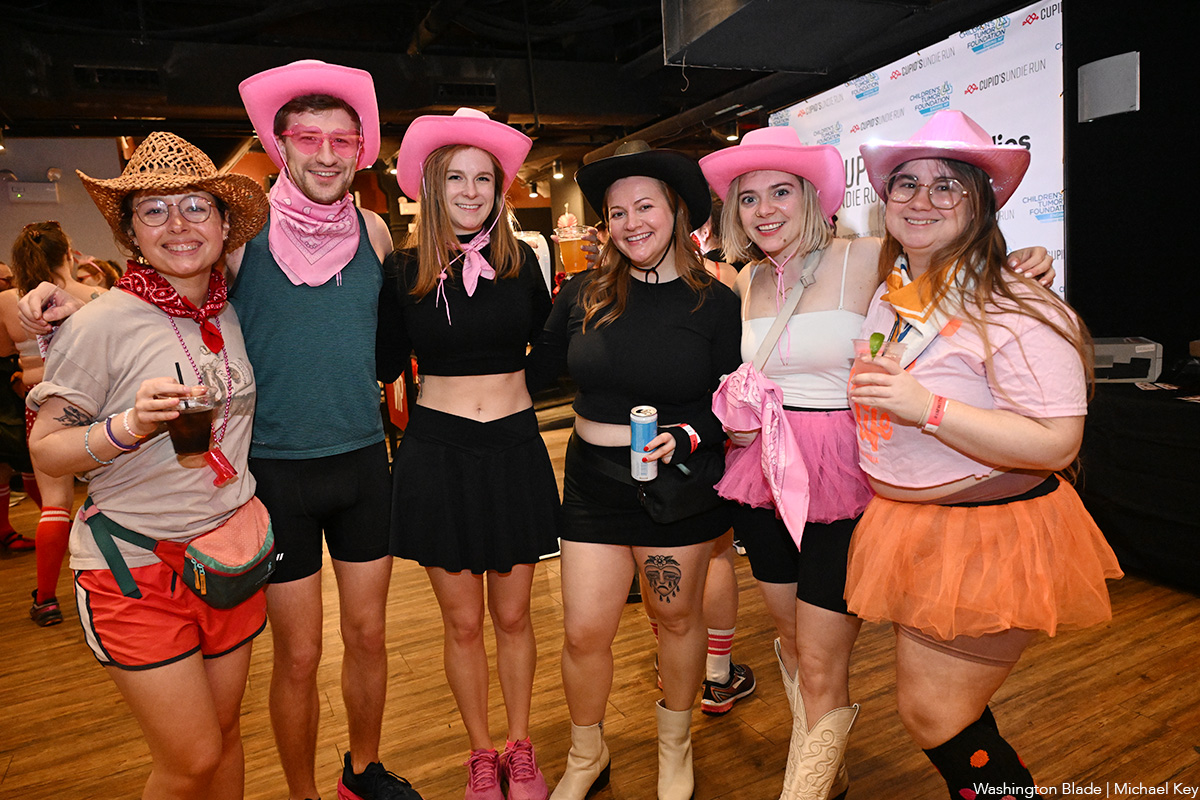
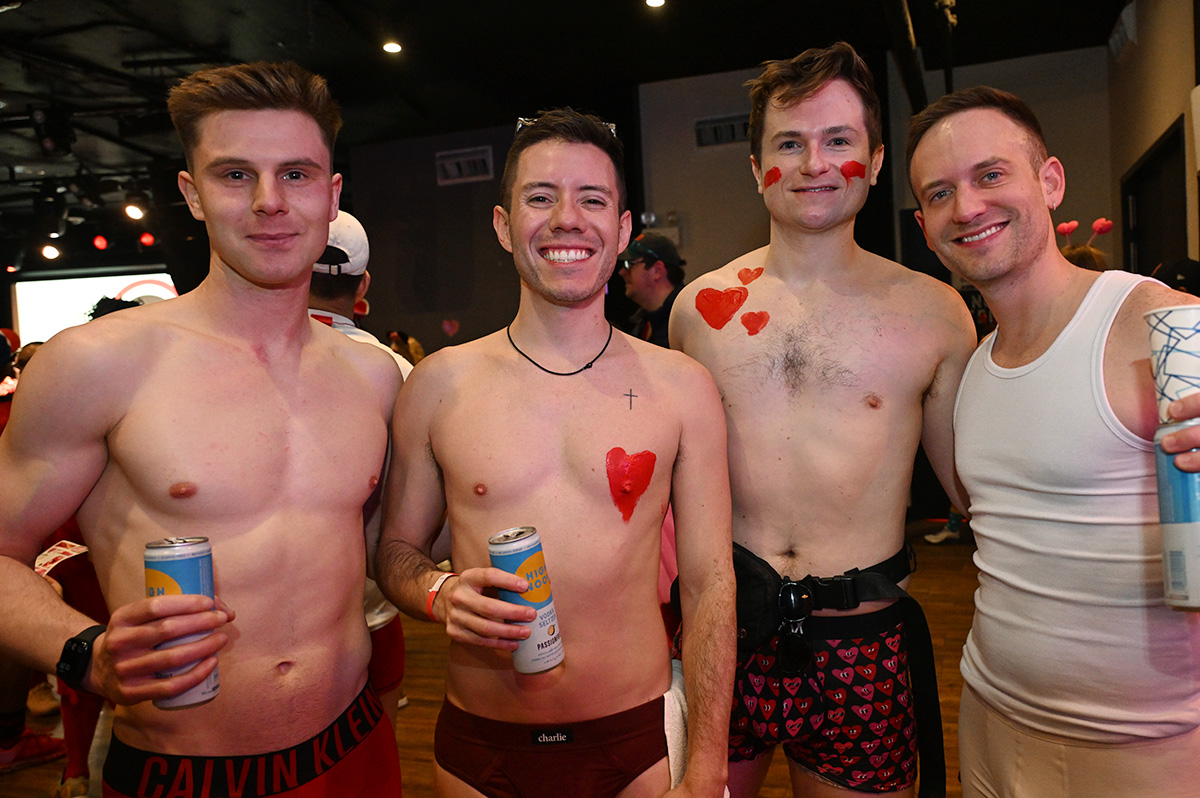
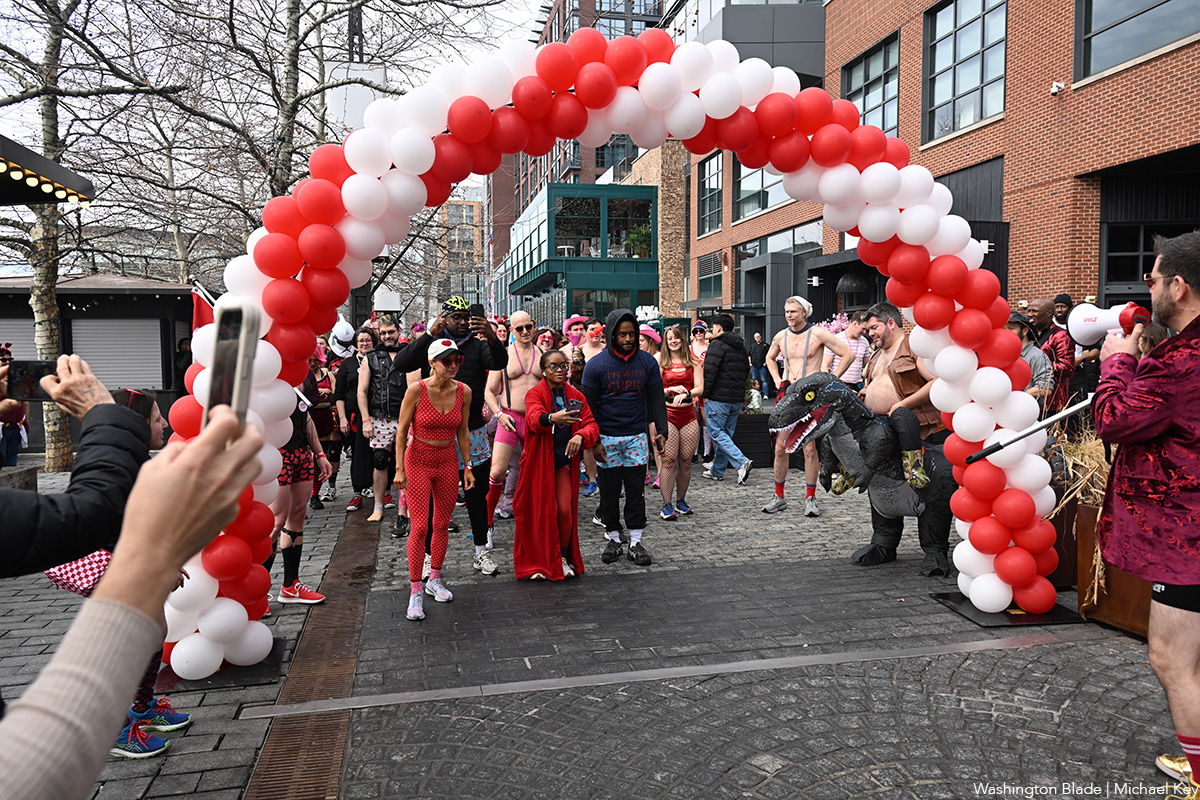
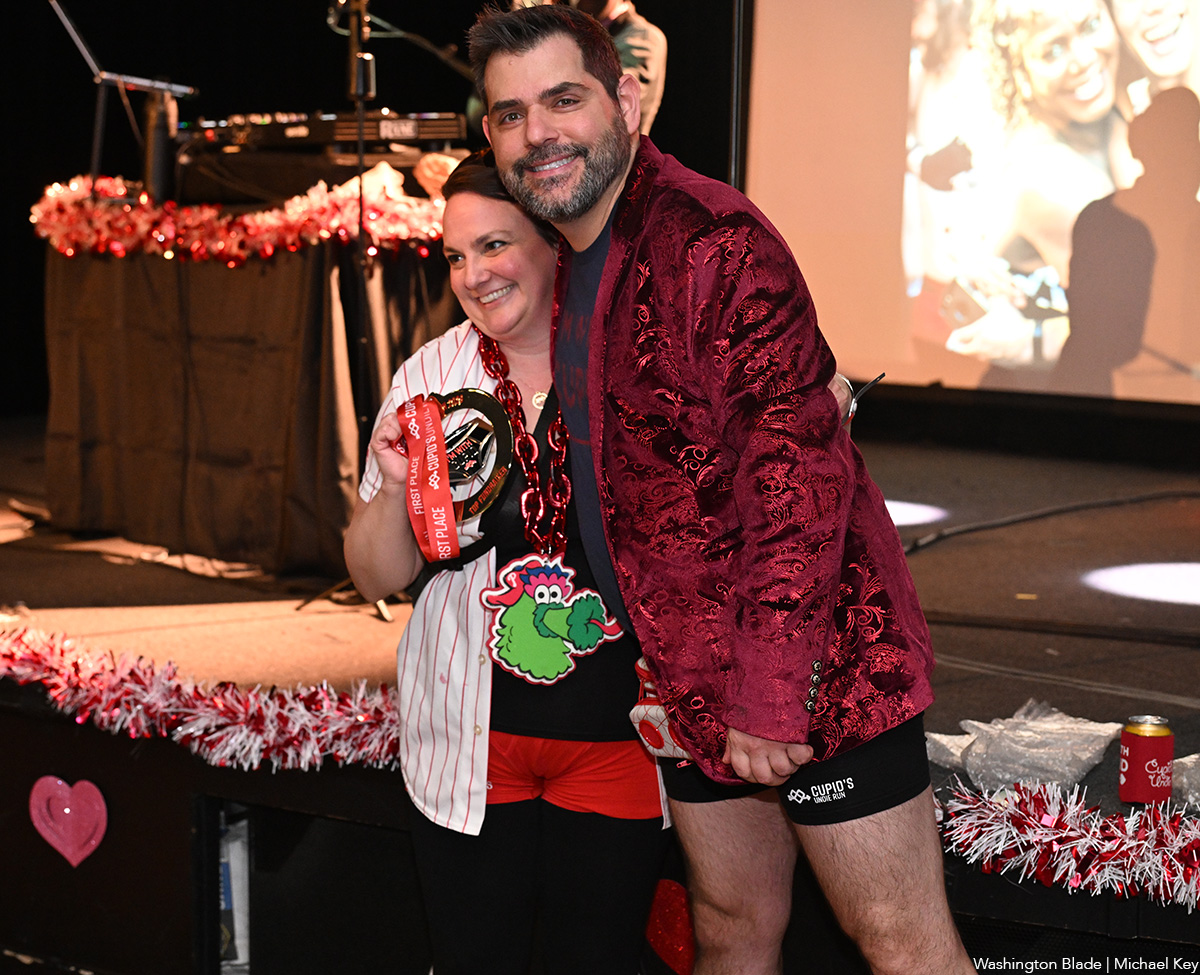
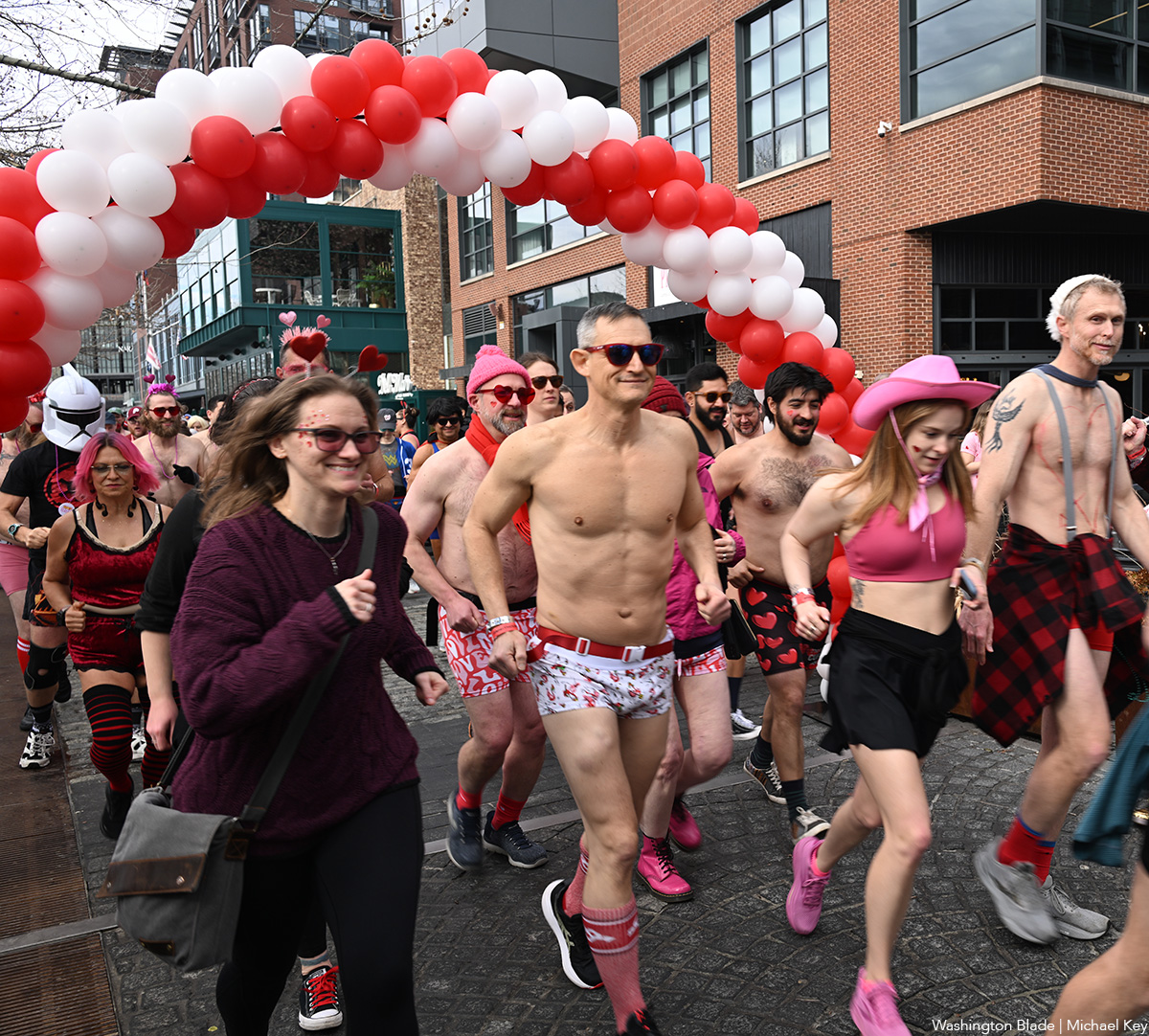
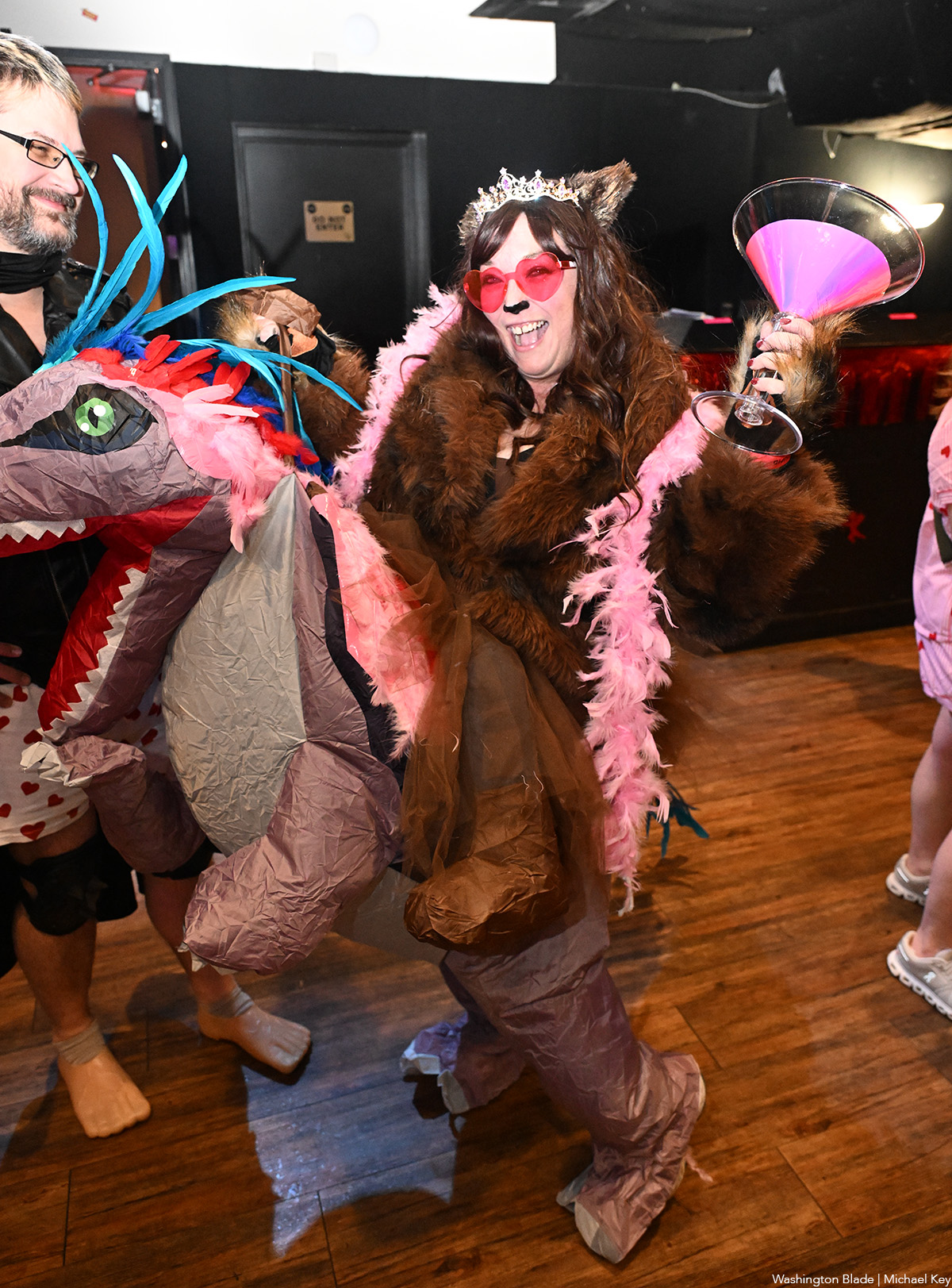
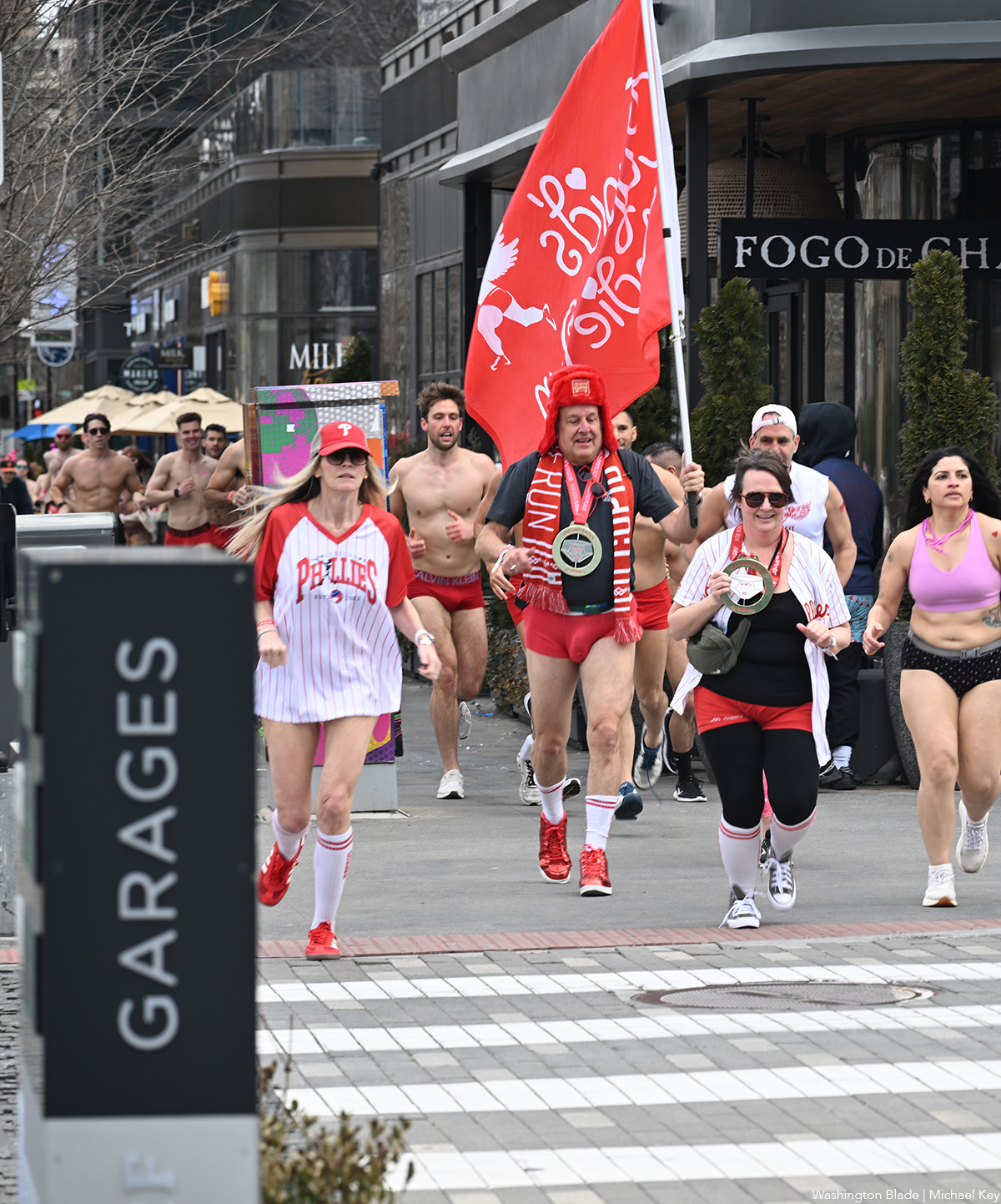
-

 Movies5 days ago
Movies5 days agoRadical reframing highlights the ‘Wuthering’ highs and lows of a classic
-

 District of Columbia4 days ago
District of Columbia4 days agoJudge rescinds order against activist in Capital Pride lawsuit
-

 District of Columbia4 days ago
District of Columbia4 days agoTrans activists arrested outside HHS headquarters in D.C.
-

 Ecuador5 days ago
Ecuador5 days agoJusticia reconoce delito de odio en caso de bullying en Instituto Nacional Mejía de Ecuador





